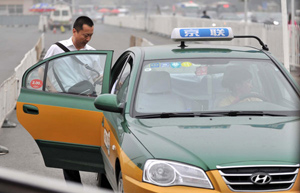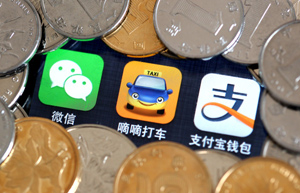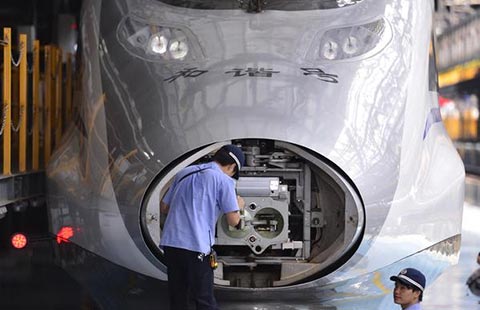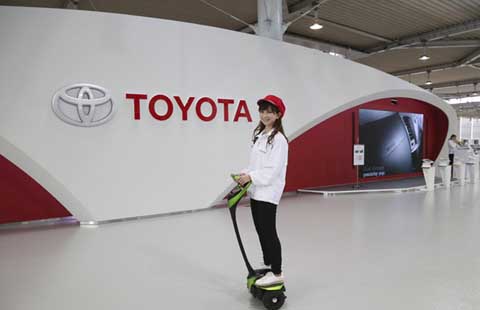Dead end for taxi-app subsidies
By Gao Yuan (China Daily) Updated: 2014-05-17 04:31Taxi clients using mobile applications to book cabs will no longer be subsidized by providers of those services, China's two most-used taxi-hailing app companies said on Friday.

|

|
The announcements placed a marker in a multi-billion-yuan price war. "We will stop cash subsidies to taxi users and drivers by Saturday," Didi Dache said on Weibo.
"Long-term rewarding policies are on the horizon." Competitor Kuaidi Dache, with the biggest taxi-booking mobile application by market share, posted a similar online announcement. It said the company is looking for new ways to subsidize users.
Didi and Kuaidi control more than 97 percent of China's taxi-booking market, according to 199IT.com, an Internet statistics organizer.
Kuaidi is backed by e-commerce giant Alibaba Group Holding Ltd. It handled more than 6 million taxi-bookings a day in the first quarter, according to 199IT.com. It had larger city coverage than its rival. The Hangzhou-based company serves more than 260 Chinese cities.
Didi is available in fewer than 180 cities. Didi has spent more than 1 billion yuan ($162 million) in subsidies since January to gain market share. It claimed to have more than 100 million accumulated users. The Shenzhen-based Internet company Tencent Holdings Ltd funded Didi. Tencent's popular social mobile application WeChat provided Didi Web-based bill payment services.
The loss of subsidies does not seemto bother people who frequently use mobile applications to order taxis. "I will still use applications to book taxis because that's the easiest way to get a car in rush hour," said Han Yang, a 27-year-old working for an IT magazine in Beijing.
"Subsidies were merely a nice byproduct for me to use the applications."
|
 |
 |
- Shanghai limits use of taxi apps
- Taxi apps' battle remains white-hot in China
- Beijing airport clears taxi-apps
- The battle of the taxi apps
- Airport warns against use of taxi apps
- Taxi apps help drivers find fares, vice versa
- Hail-a-taxi app banned in one Chinese city
- Passengers, cabbies hail mobile taxi apps
- No smartphone, no taxi
- Videographic: the battle of the taxi apps
- Apps make it easier to hire taxis
- Battle between taxi app Didi and Kuaidi
- Dead end for taxi-app subsidies
- Investment from Japan ebbs amid uncertainty
- Stronger economy on the horizon, experts say
- Chinese yuan, ever-more a global currency
- Beijing Capital Land to launch O2O platform
- Huawei bringing globalization and localization together
- Securities companies eye bigger market role
- Geothermal energy generates economic benefits















